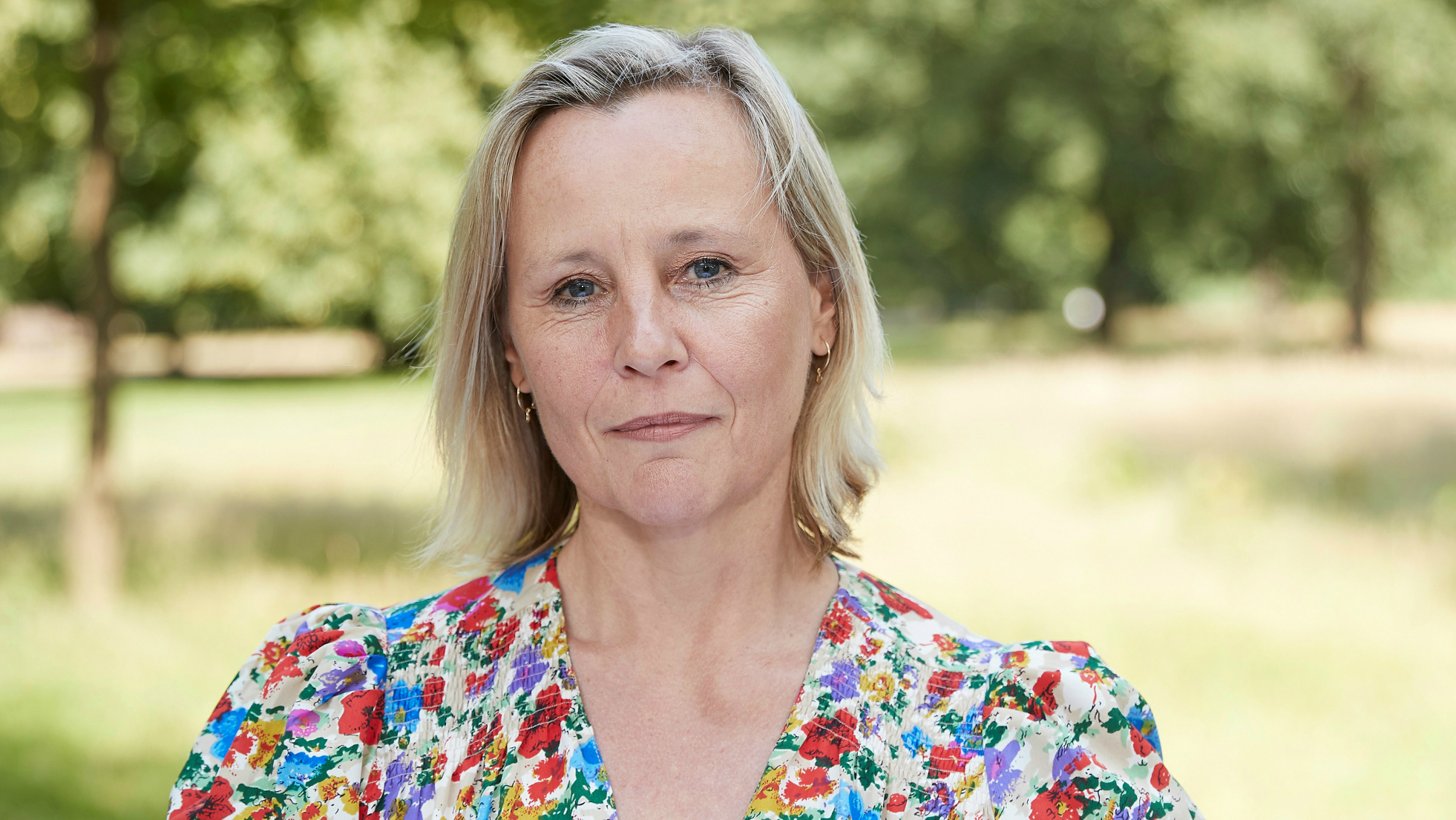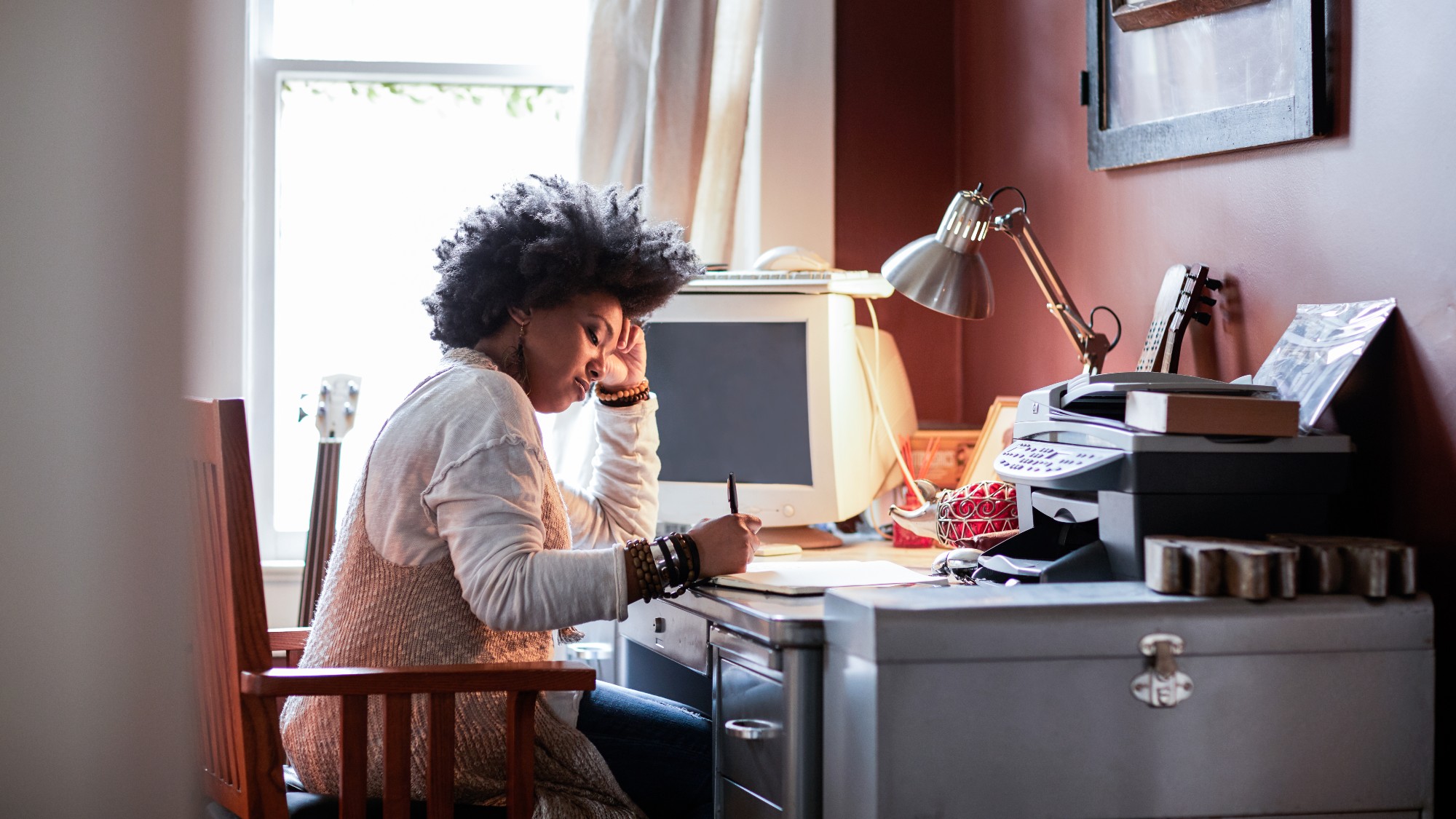7 expert-approved tips on mentally preparing for Lockdown 3.0
New year, same lockdown. But don't lose hope for 2021, writes psychotherapist Sasha Bates. Here's how to reframe your mental outlook when a return to normality is still a long way off


New year, same lockdown. But don't lose hope for 2021, writes psychotherapist Sasha Bates. Here's how to reframe your mental outlook when a return to normality is still a long way off
Since last summer, and its heady days of Eat Out to Help Out and hot dates with your hairdresser (nope, not even the best of the best hair dryers could compare), the next stage of lockdown, which we hoped would be a gradual phasing out of restrictions and eventual return to normality, is now officially Lockdown 3.0.
With the government's current Lockdown 3.0 plans seemingly in place until at least mid Feb, (hello, homeschooling until at least Feb half-term for many parents), the 'roadmap' back to normalcy that we'd once hoped would end in the ability to see friends and family again is plotted with a last-ditch decision to cancel Christmas, school closures for already stressed beyond the pale parents, and record rates of redundancies.
Unsurprisingly, then, our mental health is suffering the consequences.
But help is on hand. We felt our anxiety levels rising and knew it was time to call in the clear-thinking big guns – AKA psychotherapist Sasha Bates. Here the author of best-selling book Languages of Loss reveals how to mentally navigate Lockdown 3.0, as we come to terms with the fact that there will be no quick return to our pre-pandemic lives.
How to mentally prepare for the next stage of lockdown
Making plans for all the fun and exciting things we are going to do once Lockdown 3.0 is lifted has helped a lot of us get through the last few weeks. Focusing on the fact that this is temporary, and that we can get back to normal soon has been a necessary crutch for many of us. But how is that strategy working now that it’s looking increasingly unlikely that ‘normal’ life will resume any time soon? The very thing that has helped us through, might now be the thing that is making this next stage even harder.
It’s becoming increasingly obvious that we don’t know when this will be over, not really. And when it is, we don’t know how drastically life will have changed. And uncertainty is one of the hardest of states to manage. So, what can we do to get through these next few weeks of vagueness, frustration and, yes, sadly, still fear? The fear of getting ill is still there, but so is the fear of whether we can cope with much more of this restricted lifestyle, plus the ever-present fear of what the future will look like once things do get easier. Sounds grim? I’m not so sure.
Celebrity news, beauty, fashion advice, and fascinating features, delivered straight to your inbox!

In fact, there are several things we can do. And despite that rather gloomy intro, they are things that I think will make the next few weeks of lockdown not just bearable, but potentially life affirming, even possibly life changing.
Firstly, alter your plans and the timescale of your plans
Rather than focus on that post lockdown middle future, which is so unknowable, focus instead both on the more long-term future – what you can do this time next year – and the immediate future – what you can do today and tomorrow.
Be very specific with your planning so you regain the feeling of control
When so much of our lives are out of our control, reminding yourself what is, is empowering and reduces anxiety. Break your day down into manageable chunks of time, create a schedule, and stick to it. Get up, go to bed and eat meals at the same time every day; include the things that you have to do – work and housework - and build in slots for things that you know will help your mental and physical health - exercise and meditation; schedule in time for communicating with friends, and most importantly, time for the things you really enjoy doing – a hobby and self-care.

Hope for the best but prepare for the worst
And assume we are in this for the long haul. Envisage your worst-case scenario, double it, and mentally prepare for that. That way anything less is a bonus and rather than facing daily disappointment that things haven’t changed, it will come as a nice surprise when they do.
Imagine looking back in ten years’ time
How would you like to remember lockdown? As a time of constant frustration and boredom, or as a time when you were able to change your pace, get to know yourself better, approach things a bit differently and change lifelong habits?
Be compassionate
Your moods and your ability to cope will be constantly shifting so try to honour your feelings throughout. Give yourself permission to grieve, rage and sob during the bad days, but having let it all out, make the most of the good days, find what joy you can in the small things, and be grateful for what lockdown is providing that you wouldn’t otherwise have discovered.
Make lists of all those good things about lockdown
Those you have experienced for yourself, and those you may only have heard about – the return of fish and ducks to Venice, for instance.
It’s about managing your expectations
It's not just about the likely end-date, but also about how much you can get done, and how you are coping. These are exceptional times, we are dealing with a very stressful situation, so be kind to yourself and understand that things will take longer than normal, and that we will all ‘lose it’ at certain times.
If you do all these things, you may find you adapt new ways of being that will serve you well post-lockdown. And finally, and most importantly, do not give up hope - lockdown WILL end.
Languages of Loss: A psychotherapist's journey through grief by Sasha Bates (paperback) – £9.99 | Waterstones
Languages of Loss by Sasha Bates is published by Yellow Kite as a hardback, ebook, audiobook and soon to be paperback.
Maria Coole is a contributing editor on Marie Claire.
Hello Marie Claire readers – you have reached your daily destination. I really hope you’re enjoying our reads and I'm very interested to know what you shared, liked and didn’t like (gah, it happens) by emailing me at: [email protected]
But if you fancy finding out who you’re venting to then let me tell you I’m the one on the team that remembers the Spice Girls the first time round. I confidently predicted they’d be a one-hit wonder in the pages of Bliss magazine where I was deputy editor through the second half of the 90s. Having soundly killed any career ambitions in music journalism I’ve managed to keep myself in glow-boosting moisturisers and theatre tickets with a centuries-spanning career in journalism.
Yes, predating t’internet, when 'I’ll fax you' was grunted down a phone with a cord attached to it; when Glastonbury was still accessible by casually going under or over a flimsy fence; when gatecrashing a Foo Fighters aftershow party was easy-peasy-lemon-squeezy and tapping Dave Grohl on the shoulder was... oh sorry I like to ramble.
Originally born and bred in that there Welsh seaside town kindly given a new lease of life by Gavin & Stacey, I started out as a junior writer for the Girl Guides and eventually earned enough Brownie points to move on and have a blast as deputy editor of Bliss, New Woman and editor of People newspaper magazine. I was on the launch team of Look in 2007 - where I stuck around as deputy editor and acting editor for almost ten years - shaping a magazine and website at the forefront of body positivity, mental wellbeing and empowering features. More recently, I’ve been Closer executive editor, assistant editor at the Financial Times’s How To Spend It (yes thanks, no probs with that life skill) and now I’m making my inner fangirl’s dream come true by working on this agenda-setting brand, the one that inspired me to become a journalist when Marie Claire launched back in 1988.
I’m a theatre addict, lover of Marvel franchises, most hard cheeses, all types of trees, half-price Itsu, cats, Dr Who, cherry tomatoes, Curly-Wurly, cats, blueberries, cats, boiled eggs, cats, maxi dresses, cats, Adidas shelltops, cats and their kittens. I’ve never knowingly operated any household white goods and once served Ripples as a main course. And finally, always remember what the late great Nora Ephron said, ‘Everything is copy.’
